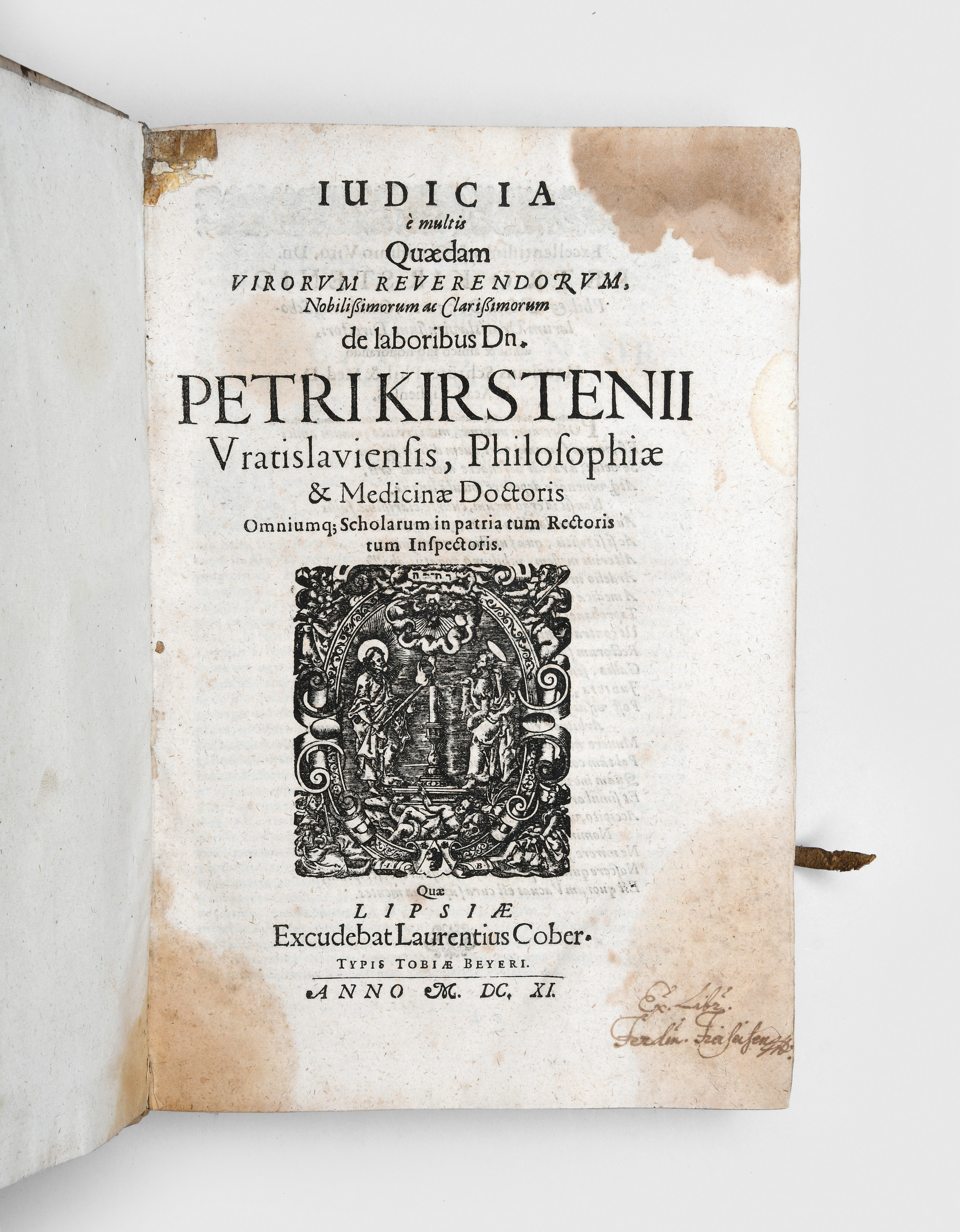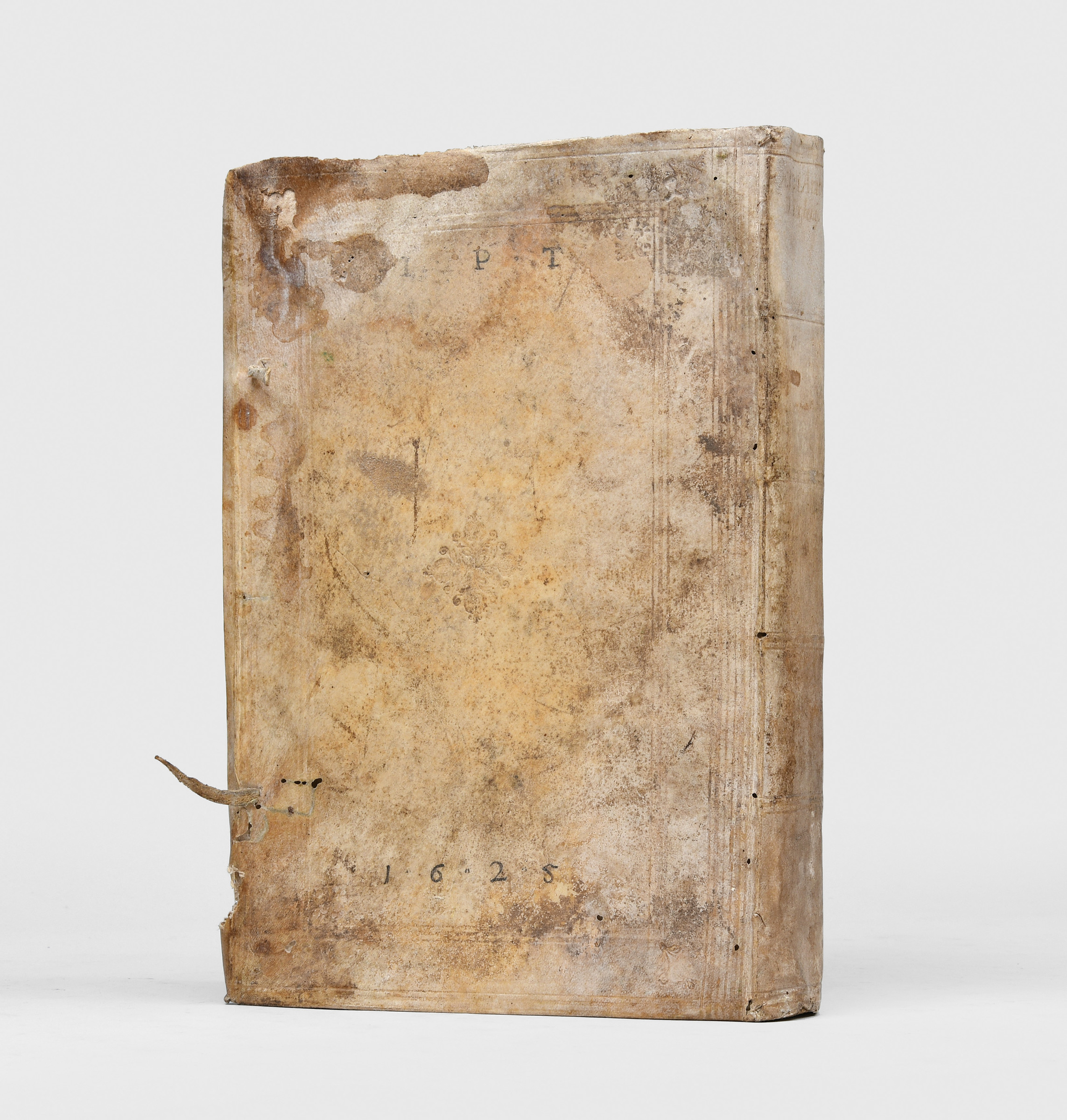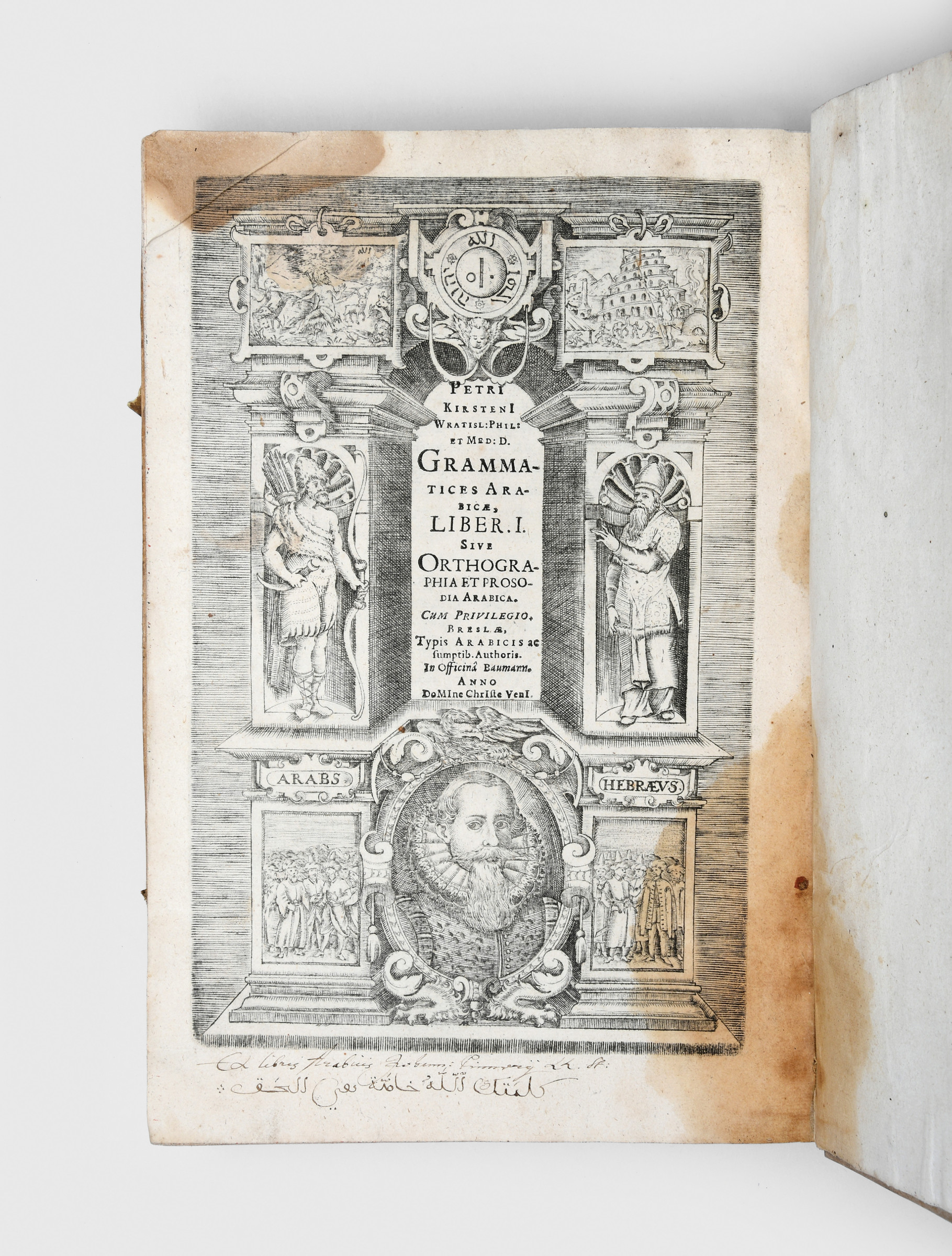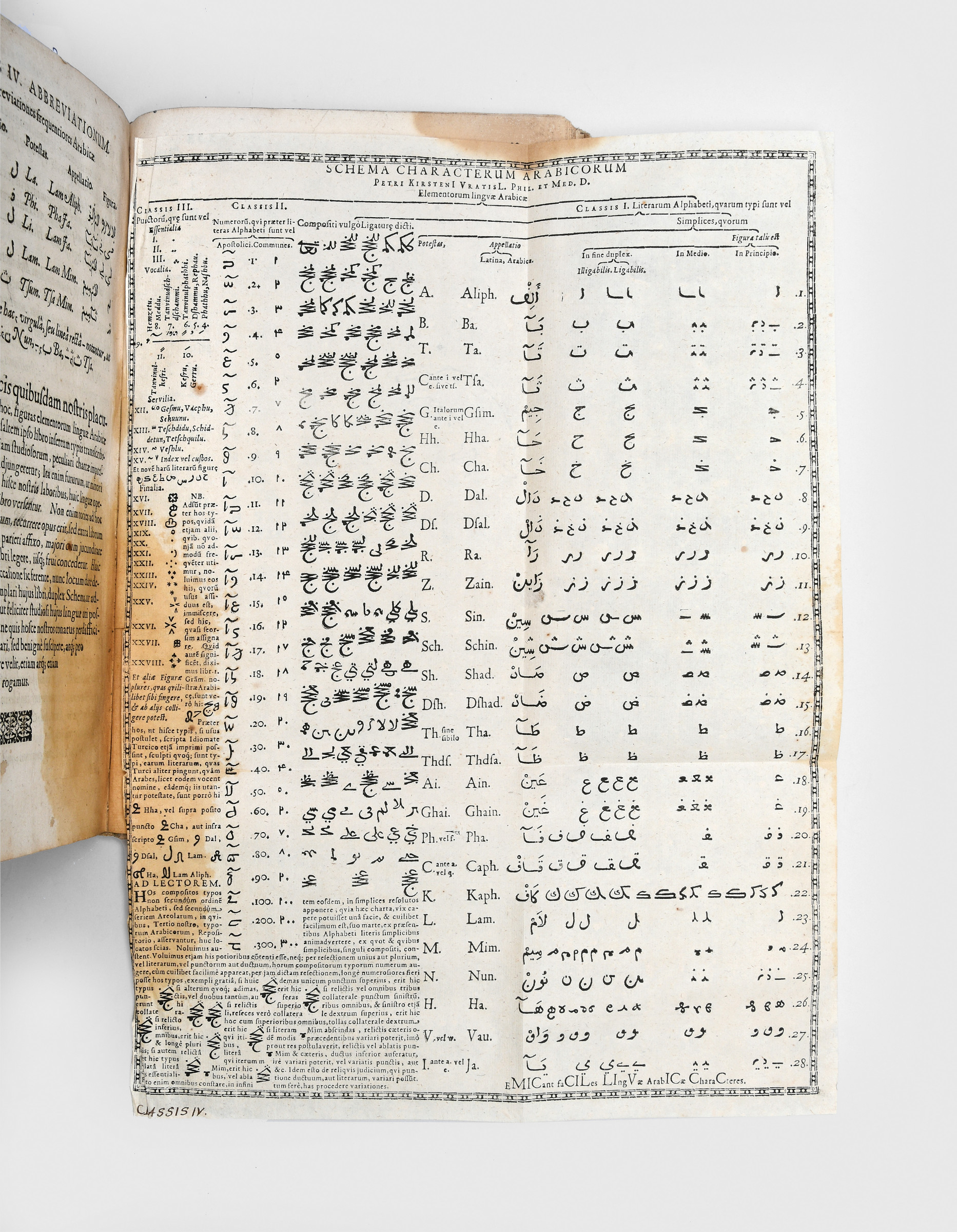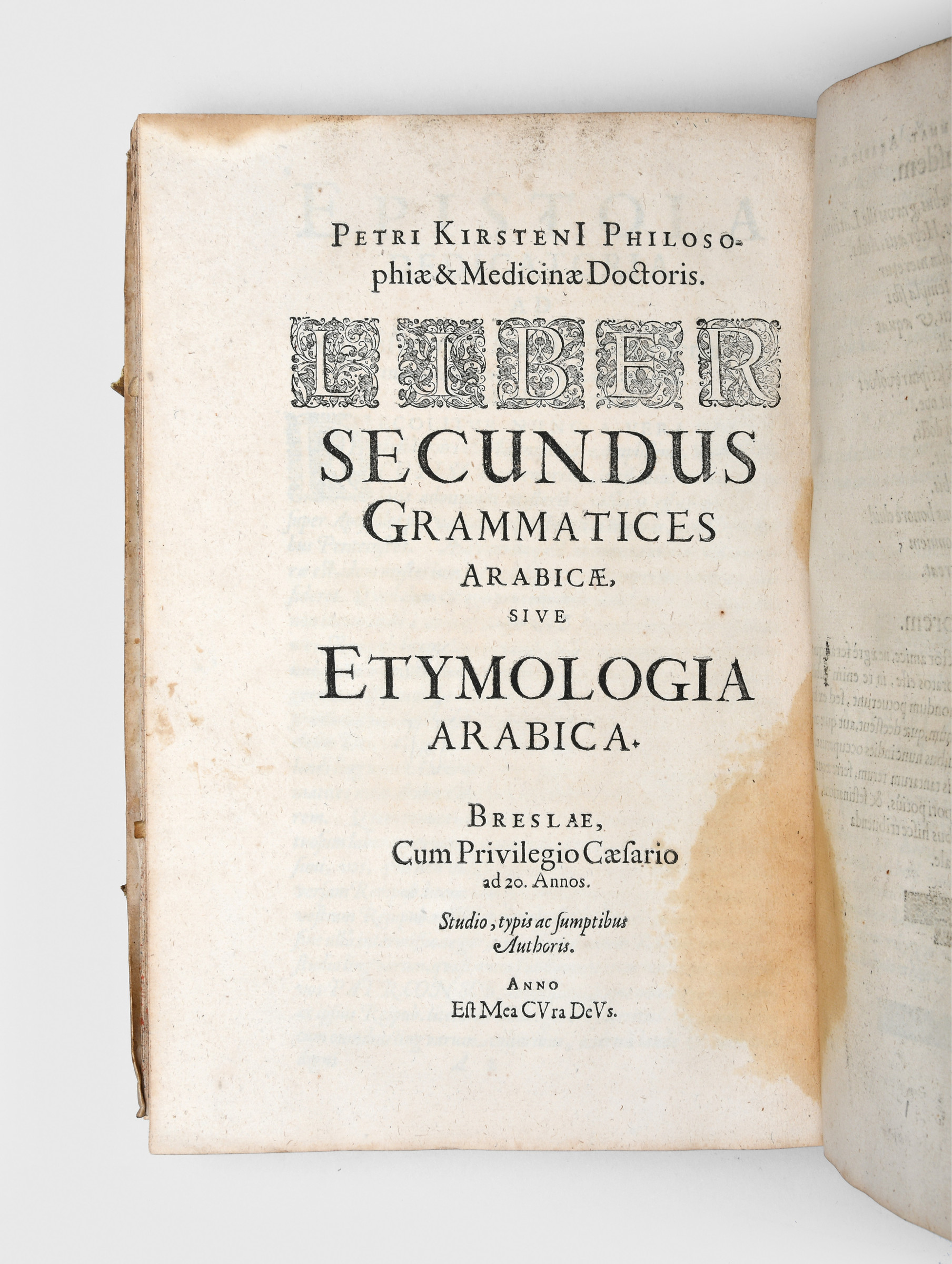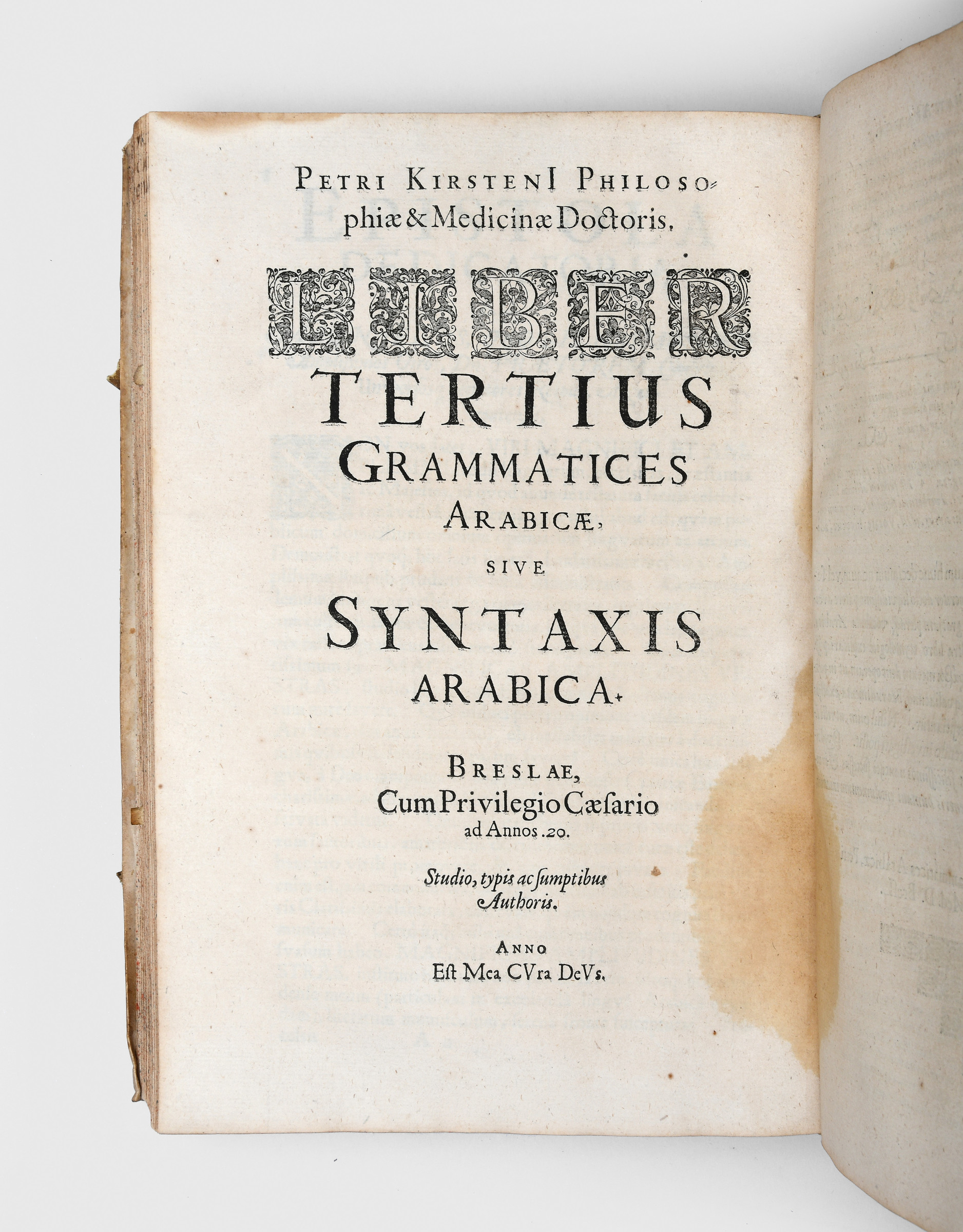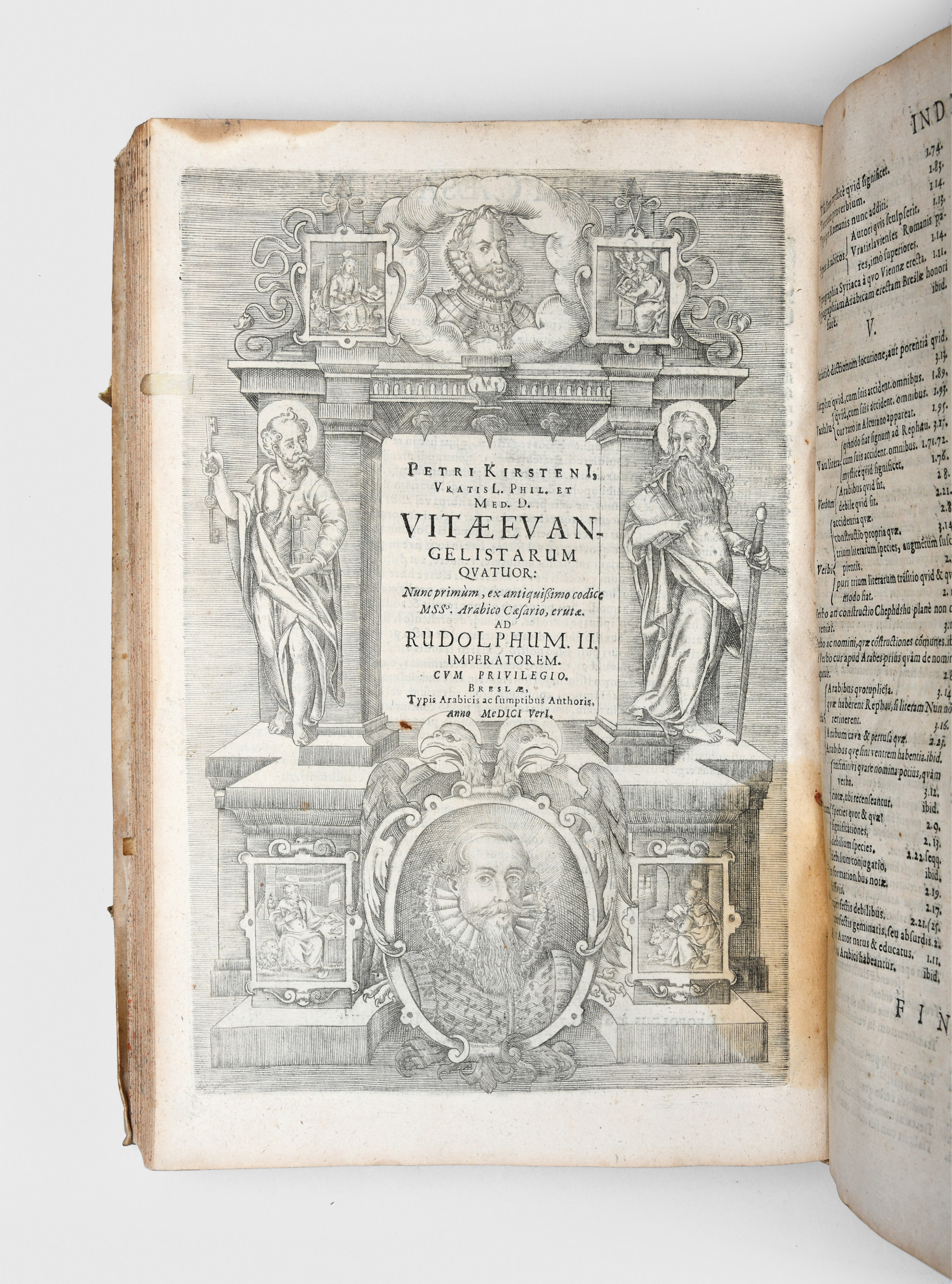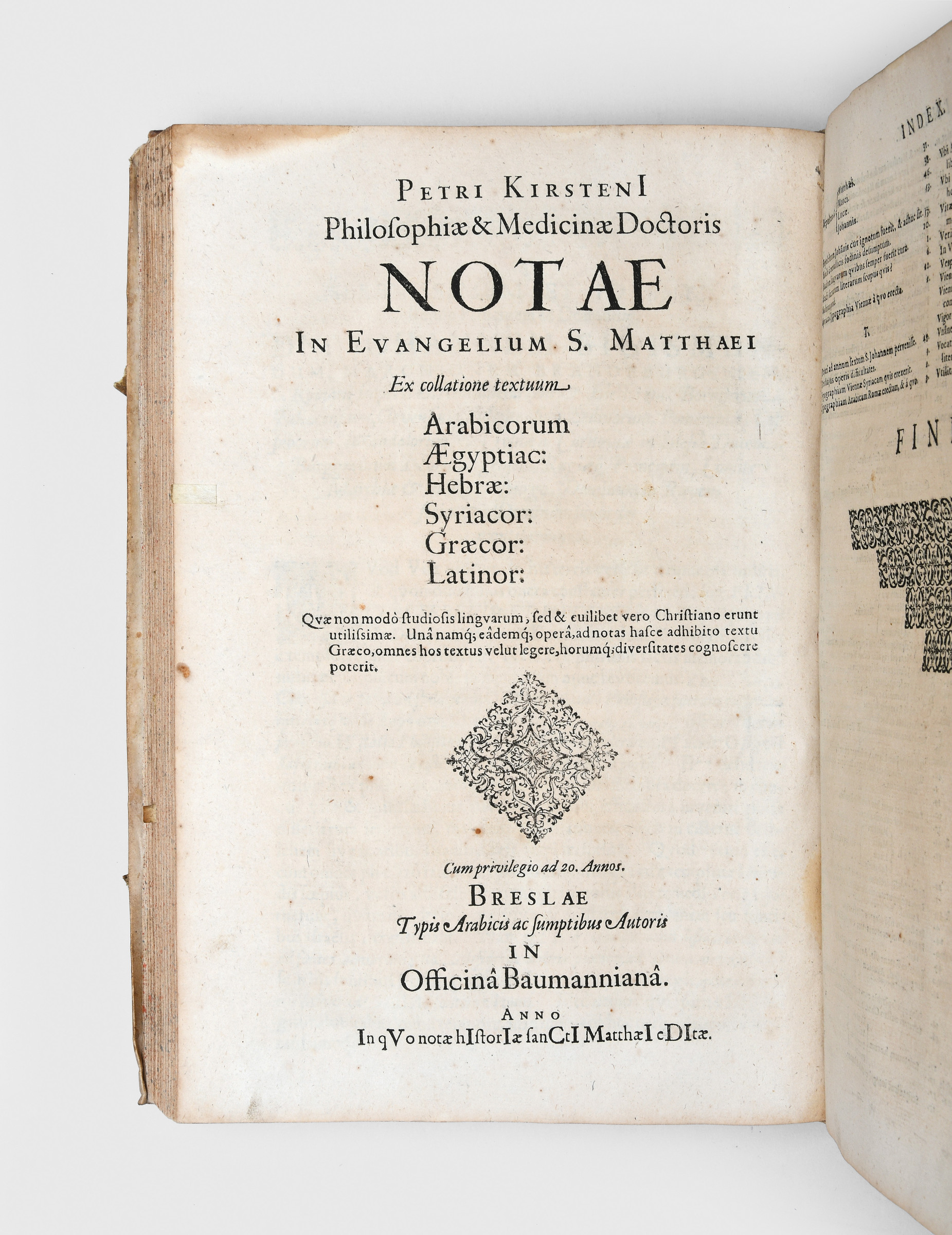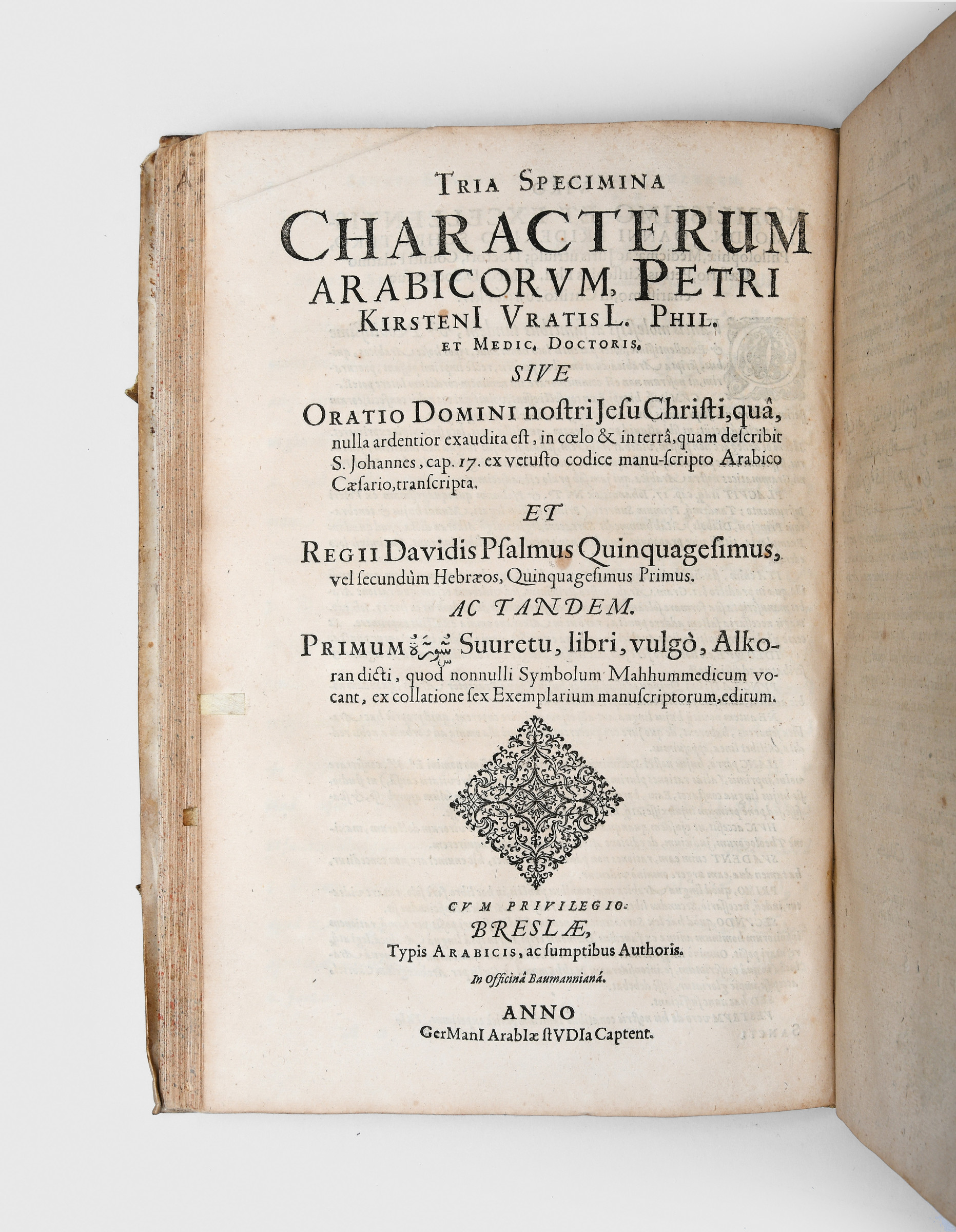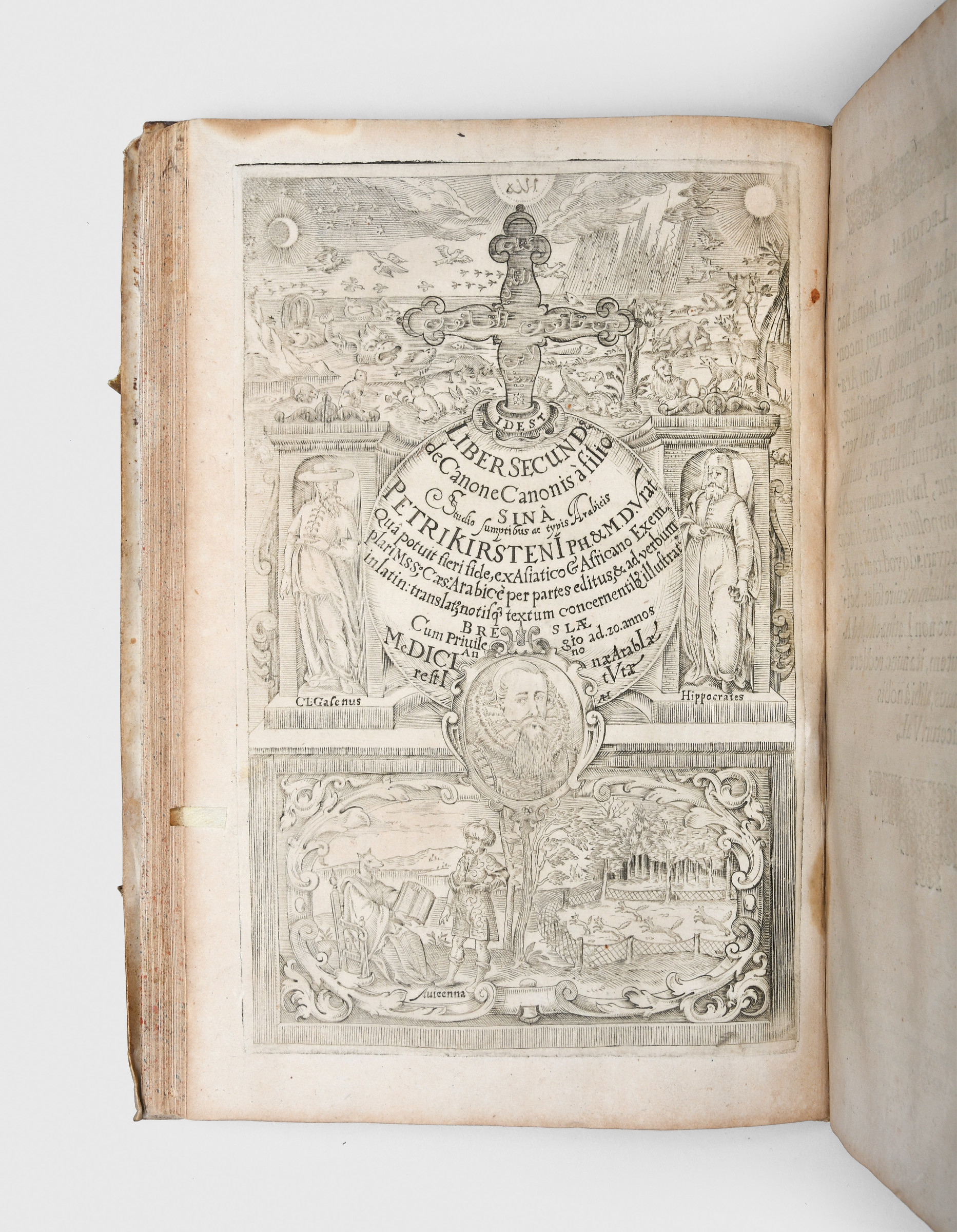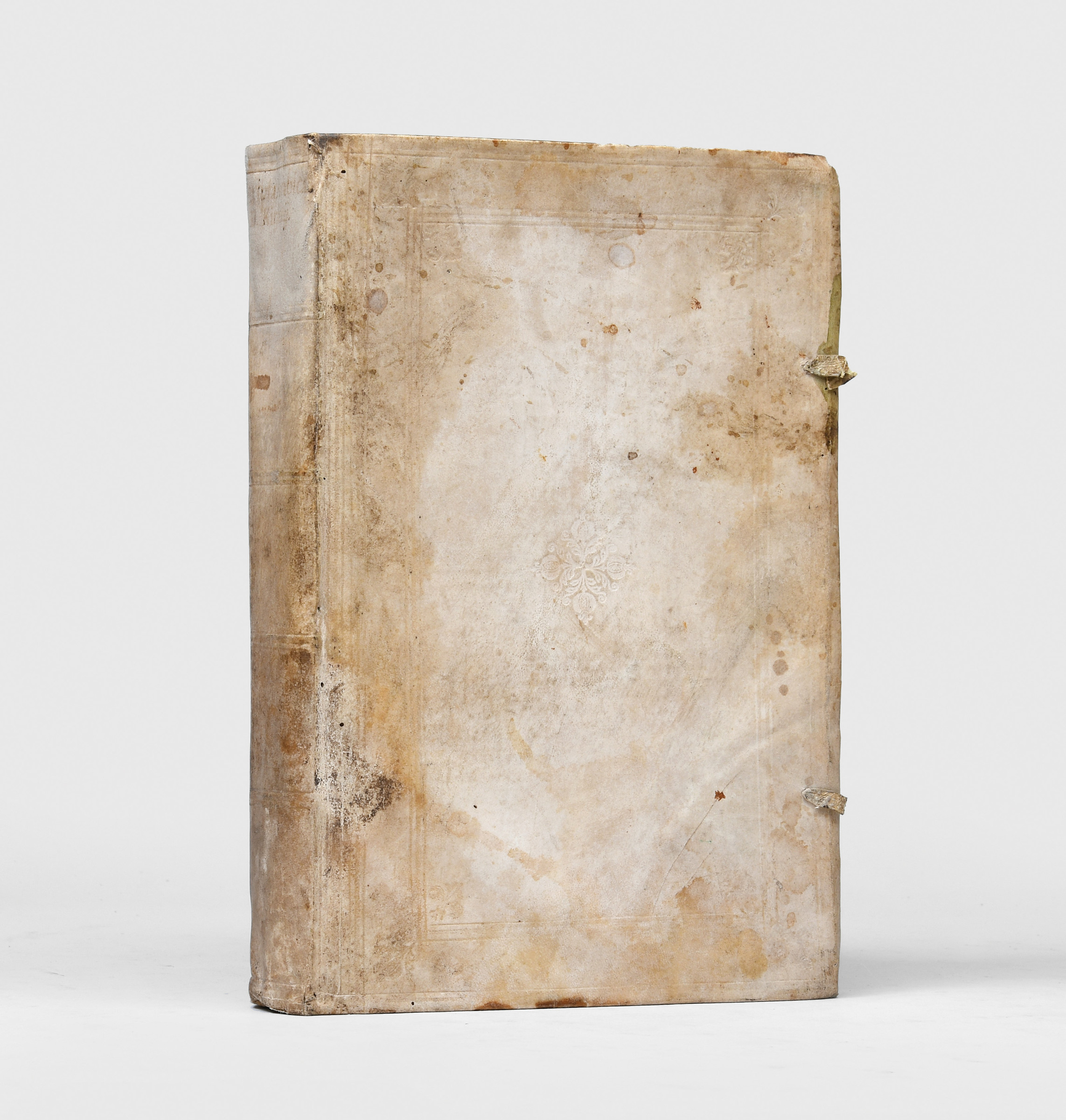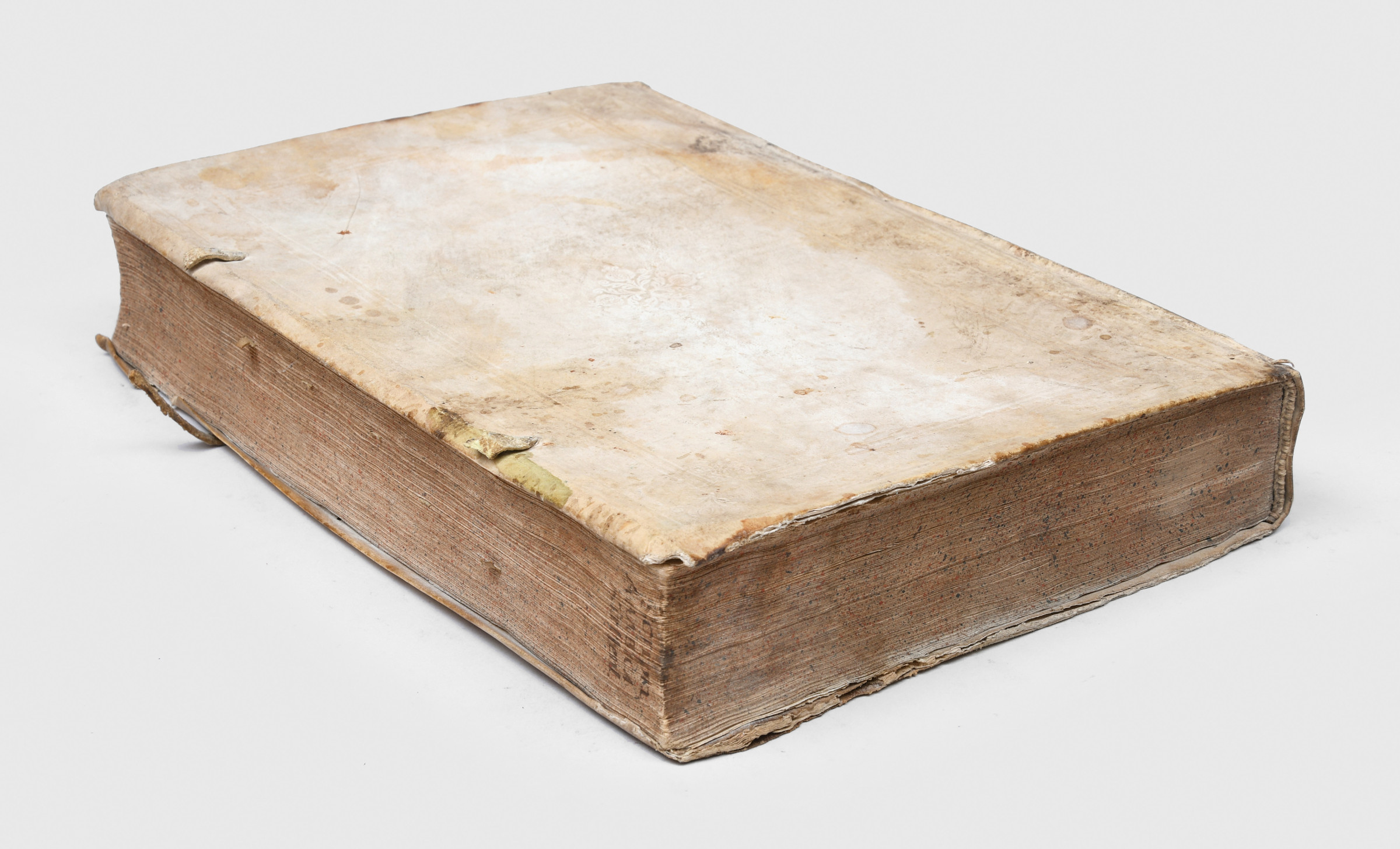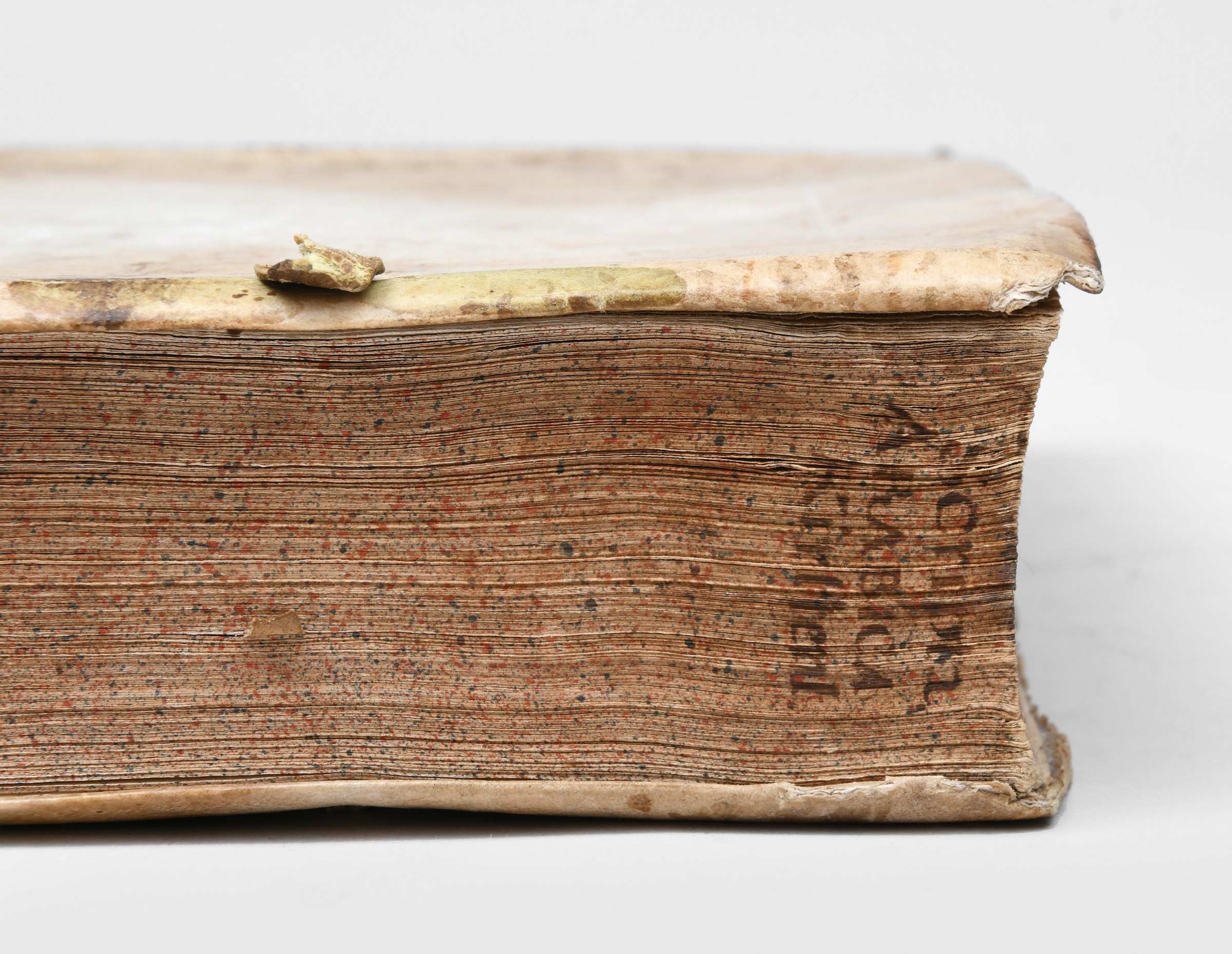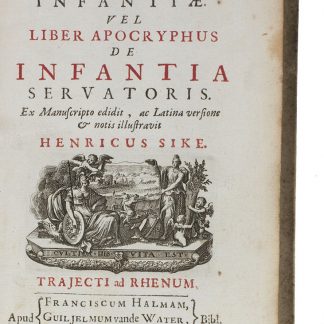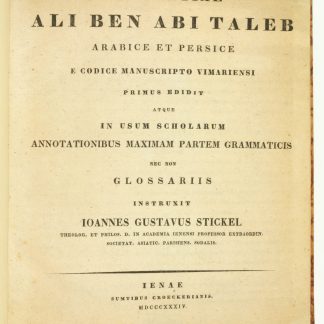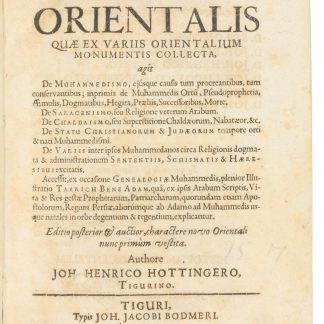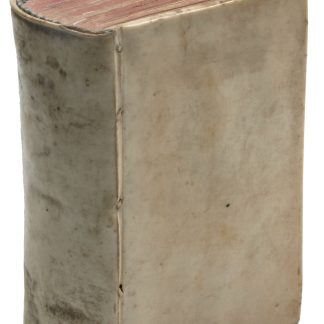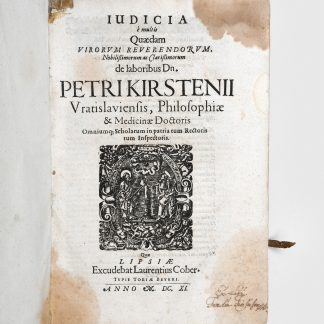Complete collection of Kirsten's privately printed Arabic works in folio
Grammatices Arabicae libri I-III. [With:] Vitae evangelistarum quatuor. [And:] Notae in Evangelium S. Matthaei. [And:] Epistola S. Judae apostoli. [And:] Tria specimina characterum Arabicorum. [And:] Ibn Sina (Avicenna). Liber Secundus de Canone Canonis a filio Sina. [And:] Judicia e multis Quaedam Virorum Reverendorum ... de laboribus Dn. Petri Kirstenii.
Folio (303 x 198 mm). Altogether 7 works in 1 volume. Contemporary vellum over thin paper boards, sides panelled in blind, manuscript titles on spine and fore edge, the rear cover stamped I.P.T. and 1625 (see note on provenance), red and blue sprinkled edges, lacks ties.
All works collate complete. First named work with "Schema characterum Arabicorum", not called for but bound in, a broadside folded several times from Decas sacra canticorum et carminum Arabicorum (1609). Vitae evangelistarum quatuor is variant with privilegium printed on title verso; Notae in evangelium S. Matthaei is variant with typographical title.
Binding slightly soiled and with some erosion to edges, a little staining, predominantly at upper outer corner front and rear, still a very good copy in a binding dated shortly after publication.
€ 75,000.00
A complete collection of Kirsten's privately printed Arabic works in folio, comprising the first works printed in Germany with Arabic type, including a bilingual edition of Avicenna's materia medica, an Arabic grammar (essentially a revised version of Ibn Ajurrum's medieval grammar), and Kirsten's sampler of Arabic types.
Peter Kirsten (1577-1640) was one of the earliest non-Dutch scholar-typographers, born in Breslau (Wroclaw, Poland), where he started his private press in 1607. Kirsten's primary interest in learning Arabic was to enable him to read the medical works of Avicenna in the original, rather than the erroneous and inadequate translations then available. On a visit to the Low Countries, Scaliger told him that a true physician needed to know Arabic and Greek above Latin. He studied Arabian versions of Christian texts among the manuscripts in the Palatine library in Heidelberg. His use of Christian texts was not from any desire to proselytize, rather to provide parallel texts well enough known to the reader to learn Arabic (in other words, as chrestomathy). He later became court physician to Queen Christina of Sweden and professor of medicine at Uppsala, where he died.
Kirsten had his Arabic type cut by Petrus von Seelau. He published the works at his own expense from the "Officina Baumanniana" at Breslau, the printing office continued by Magdalena Baumann after the death of her husband Georg. The publication dates are given as chronograms. The individual works have separate pagination and register, and are numbered and bound in reverse order, in the Arabic manner. The exception is the last work listed here, which is bound at the front of the volume western-style. The title of that last work can be translated as "Select judgements of the noblest and most celebrated reverend men on the works of Peter Kirsten", and the text comprises nine pages of plaudits for his Arabic publications, though the names of the sages praising him are not given. The prefatory poem in his praise is by his academic colleague, Moritz Schröter.
Of Kirsten's complete output of Arabic works, only "Decas sacra canticorum et carminum Arabicorum" (1609) is not present here, presumably because it is an octavo, although it is represented by the "Schema characterum Arabicorum broadside" extracted from it. The volume appears to have been assembled at the behest of the author as a nonce collection, made up of re-issued sheets from all the earlier editions, with the "Judicia" serving as a general title and introduction to the collection.
Provenance: Ján Pinner (1586-1645), from Teuto Prona (modern Nitrianske Pravno, western Slovakia), with his ownership inscription on the first Arabic title, "Ex libris Arabicis Johann: Pinnerij LL. St.", and his initials I.P.T. (i.e., Johannes Pinnerius Teutopronensis) and the date 1625 on the cover of the binding. Pinner was a Protestant pastor and poet, rector of the Reformation Particular Latin School in Banská Bystrica (from 1619), preacher of the Slovak Evangelical Congregation (1622-26), and later town pastor in Banská Bystrica (1626-45). The Judicia title-page has the later ownership inscription of Ferdinand Freiseisen, perhaps the man of that name (d. 1714) who held various positions in the city council of Kremnica, Slovakia.

